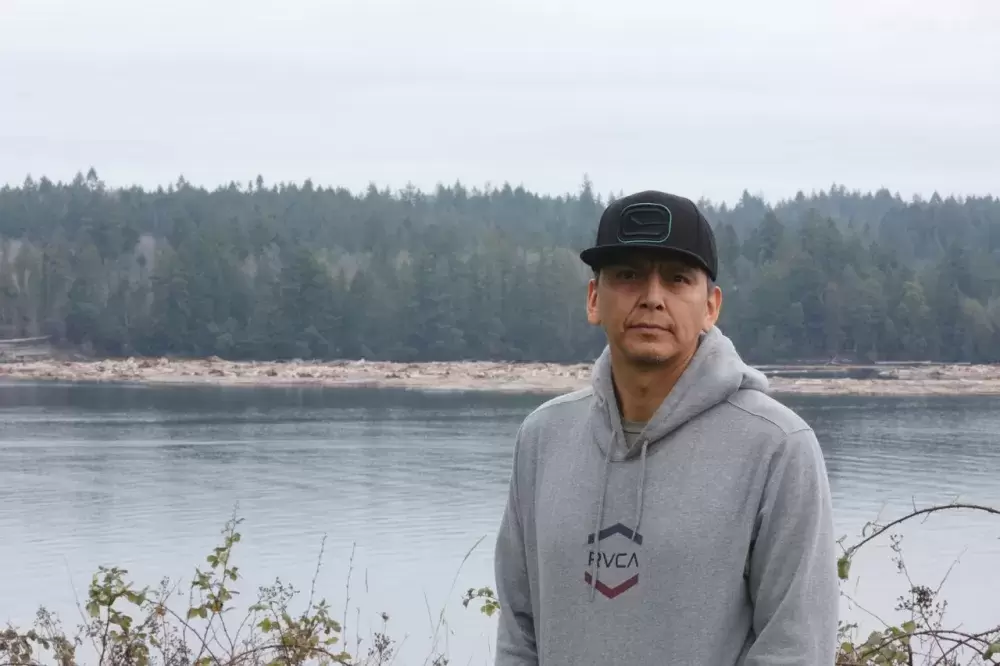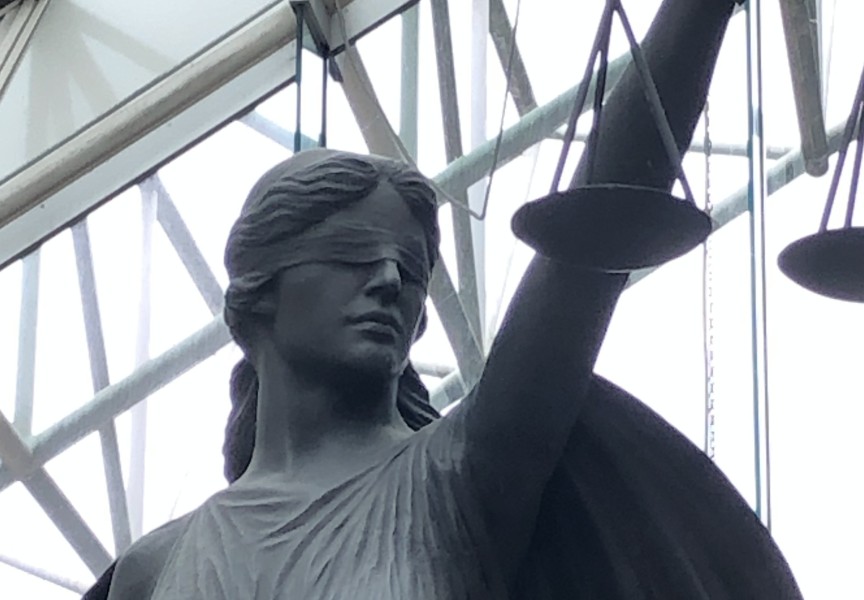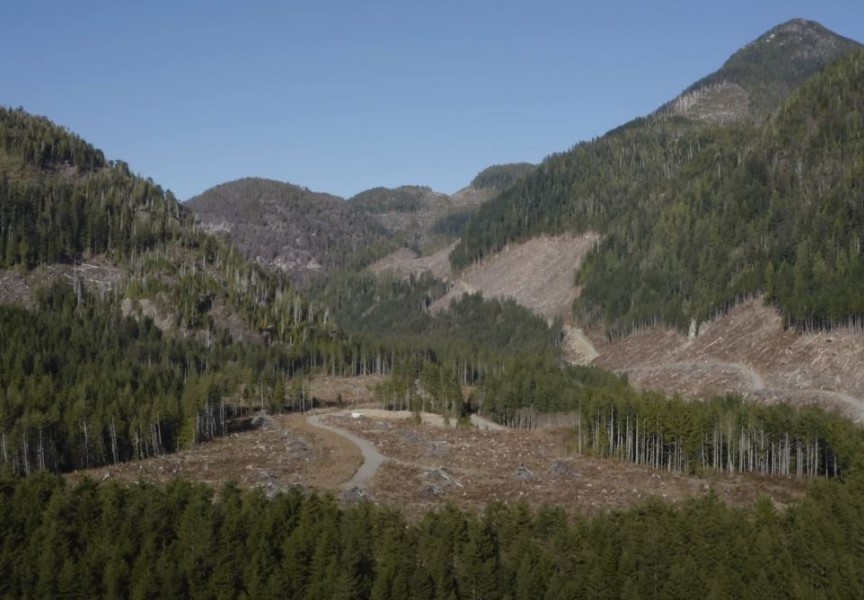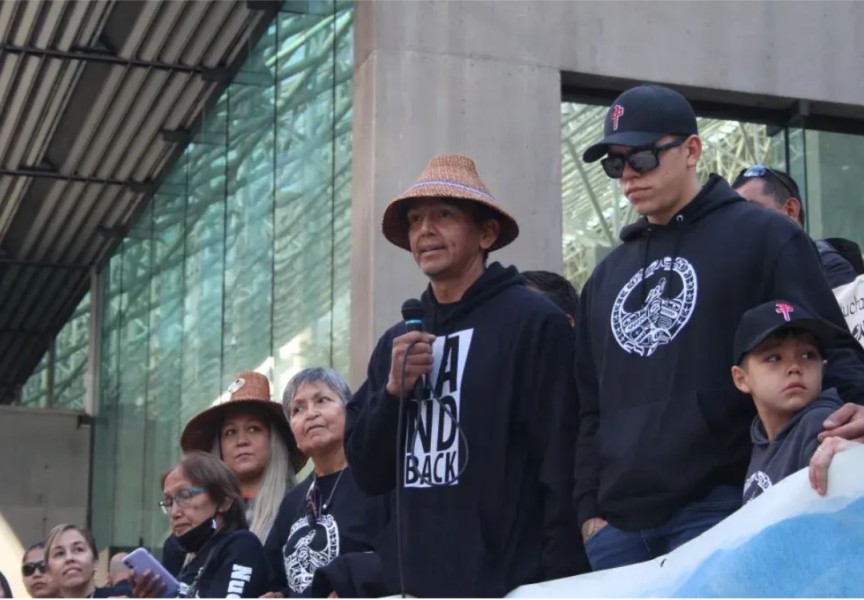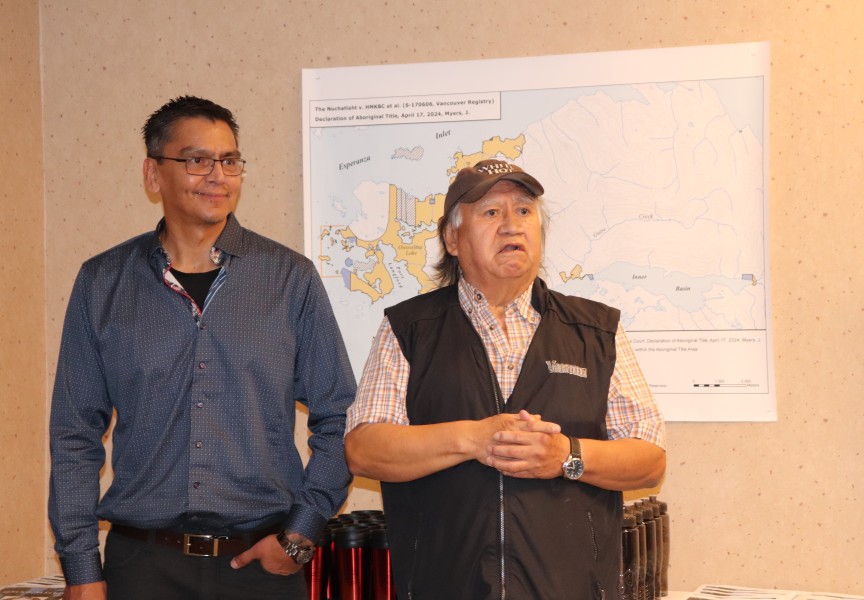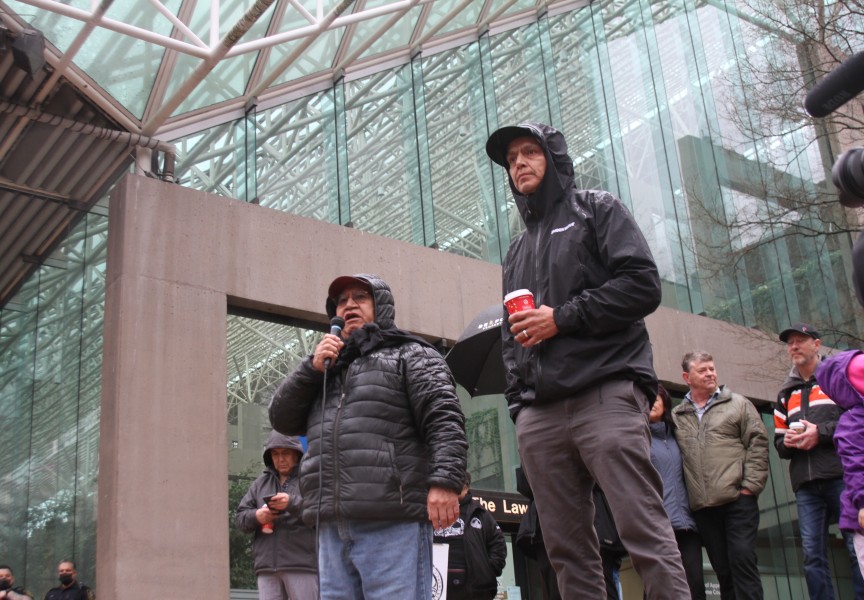A small Nuu-chah-nulth nation still awaits its day in court to prove Aboriginal title over its traditional territory, while the province prepares a case against the Nuchatlaht’s historical occupation of Nootka Island.
It’s been nearly four years since the 161-member First Nation filed its statement of claim to the BC Supreme Court, seeking Aboriginal title over approximately 20,00 hectares of land on Northern Nootka Island, territory that includes the village site of Nuchatlitz.
Nuchatlaht Councillor Archie Little said the claim is about taking ownership over the First Nation’s resources, thereby controlling access and sharing of the land.
“Why we’re doing what we’re doing is at one time we were okay, and we want to get back to being okay,” said Little during a recent online presentation of the title claim, which was hosted by the Wilderness Committee. “It’s sad to see most of our resources go across seas, and have our people who are suffering from medical issues because we don’t eat the natural resources that we’re so rich with.”
The legal test of the claim hinges on proving continued occupation of the land since 1846, the date that the British Crown asserted sovereignty over the area. Part of the Nuchatlaht’s case is evidence that Tyee Ha’wilth Jordan Michael is the direct descendent of a man who met John Kendrick at Tahsis Inlet in 1789, an American sea captain who documented the encounter.
The case is being led by Jack Woodward, who for decades worked on the Tsilhqot’in’s successful assertion of Aboriginal title in central British Columbia, which was upheld by the Supreme Court of Canada in 2014. During the online presentation Woodward said that the Nuchatlaht’s time on northern Nootka Island follows the criteria of historical continuity of habitation set out in the Tsilhqot’in decision.
“They stayed there against all odds,” said the Nuchatlaht’s lawyer, “through the storm of colonization.”
In its submission to the court, the province argues that the First Nation’s use of Nootka island has not been so consistent.
“The Nuchatlaht, prior to and at the date of sovereignty and at all material times, was comprised of loosely affiliated, small, localized family groups, some of which were territorially displaced from areas outside of the claim area by other Indigenous peoples, and did not exclusively occupy the claim area,” stated the province’s statement of claim.
Any claim over the land is weakened by the fact that the Nuchatlaht mostly relied on marine resources, argues the province.
“The claim area includes pervasive geographic features which historically and at the date of sovereignty and at all material times limited or prevented access,” said the submission, noting northern Nootka Island has terrain of “high elevation, steep and densely forested upland areas, and steep, rocky, exposed shorelines.”
“There are not now and for many years there have not been Nuchatlaht resident communities in the claim area,” continued the province’s submission. “The Nuchatlaht groups…were not known to effectively assert and defend territory, including the claim area, and other Indigenous peoples claimed and used tracts of land and resources in the claim area.”
The province’s dispute of the Nuchatlaht’s title claim shows a “blatant disregard” for the Declaration on the Rights of Indigenous Peoples Act, legislation the government passed in Victoria a year ago, said Chief Michael. The new act follows the United Nations Declaration on the Rights of Indigenous Peoples, which affirms that “Indigenous peoples have the right to the lands, territories and resources which they have traditionally owned, occupied or otherwise used or acquired.”
“It seems to be falling on deaf ears on everybody in the government and the courts,” said Michael.
Woodward noted that when Britain declared sovereignty over Nootka Island the Nuchatlaht were expropriated from their land without compensation. All forest on the island was declared property of the Crown, which brought in over a century of logging.
Now Western Forest Products holds the provincially recognised forestry tenure over the claim area, which the company is subcontracting out to smaller logging operations. In its statement of claim to the court, Western argues that the continuation of this tenure is in the best interests of the “economic development of British Columbia.”
“WFP is a major employer and contractor on Vancouver Island and one of the largest sources of employment and economic activity in the claim area,” wrote the forestry company.
“They’re defendants because they’re going to lose everything,” commented Woodward, who expects that if the Nuchatlaht gain title over their traditional territory forestry licences would collapse “like a house of cards.”
“I imagine they’ll turn around and sue the province for their loss,” added the First Nation’s lawyer.
Little spoke of the need to better use his nation’s natural resources, thinking ahead for how the land will be seven generations in the future.
“At the rate we’re going, we’ll be two generations and we’ll have nothing,” he said. “The first question I want to ask after we win is, how do we work together? How do we make things better? How do we ensure that everyone benefits from the wealth of Nuchatlaht nation?”
Those who want to help the Nuchatlaht’s cause through donations or advocacy can send their support to the Wilderness Committee at https://www.wildernesscommittee.org/take-action/support-nuchatlaht-nation

